Neda Aria's Blog, page 16
February 18, 2022
Writer vs. Writer: Maltheus Broman
In this post, we will know more about our favorite Irish author, Maltheus Broman. Mal is all in one package. Good-looking... oh sorry... (cough) we were talking about writing here. He is a funeral director and a eulogist in and around Dublin but also a novelist, poet, and lyricist. He has published a novel, two short novels, and a collection of poetry. A book of song lyrics will be released in January 2022. Today we will have a chat about his recently published book.
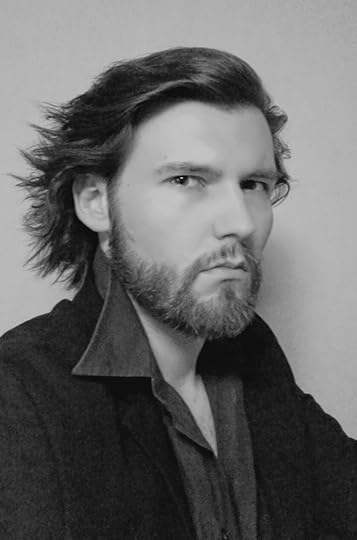
Hello Maltheus. It’s a pleasure to have a chance to chat with you. To start, could you tell a bit about yourself?
Sure, thanks for having me! My name’s Maltheus Broman, or just Mal for short. I was born in Bray in 1991. I’m a funeral director and a eulogist in and around Dublin. Besides being a somewhat avid reader, I’ve also become a novelist, a poet, and a lyricist.
My books can’t be shelved in with specific genres, but are in a tradition of what’s usually called literary fiction for reasons of convenience. Some of the more obvious influences are the works of James Joyce, Shakespeare, and John Williams. And if Houellebecq will ever found a school, you may expect me to sit in the front row. Imagine that! Houellebecq's teaching thought-provoking satire 101…
Literary fiction is a good choice for that reason. One of your books “Globopole” which is an amazing read is full of transgressive elements such as the use of the physical violence element. However, I don’t think that’s all about this book. I would like you to tell us how do you count this book as transgressive?
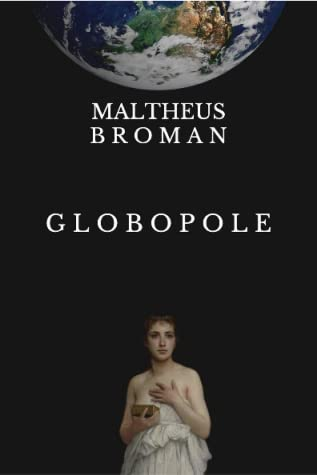
Physical violence loses its shock value rather quickly, which is why it is best used with caution in story-telling. In the case of Globopole I only sprinkled a little bit of it here and there, but the real transgressions lie deeper. The main character, Merlin Lizeray, steps over ideological boundaries; he questions our morality, our political system, and all kinds of fake certainties. And then, of course, there’s also him starting World War III.
Why transgressive fiction? What about this genre attracts you?
A good part of my bookshelf and most parts of the literary canon are soaked with blood, full of transgressions and offenses. Historically speaking, the freedom to write what you want and how you want was paid with high prices. For example, there’s a scene in Ulysses when Bloom plays pocket pool. It’s funny on so many levels, but mostly because Joyce mocks cheap romance novels, and it’s about the only time his prose is both flowery and comprehensible. Anyway, at the time this scene alone was reason enough for banning even his mortal remains from entering Ireland, although the Irish government had plenty more. What I’m saying is, the artist has good reasons to transgress. It was part of Joyce’s art. It is part of my art. And we must not take a novelist’s freedom for granted.
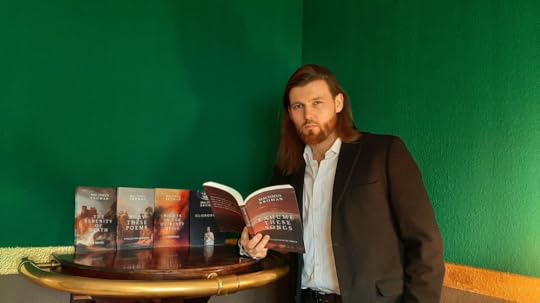
An Absolute truth! Can you tell us about your latest book? Was there anything that you've edited out of it?
My fifth book, Exhume These Songs, is a collection of lyrics. I’ve written a ton of songs and kept about a hundred in the book. My bin is full of failed experiments, some of which are quite irritating or maddening whereas others simply not exciting enough. All the songs in the collection had to pass a row of questions: Does its sound match its lyrics? Does it have a certain wit to it? Does it fit in comfortably with the rest? And so on and so forth… The best of the best made it into the collection, and they’re my favourite songs. I hum them at work, I sing them at home. Writing your own songs is fun – and a great way to listen to what’s going on in your soul: Love songs, pub songs, anthems, and traditional story-telling with music…
Things like violence, cruelty, or dirty jokes haven’t been edited or cut out, given that they serve a good purpose. People who have read my novels know I like to put a lot of songs into my books. They’re part of life, so they should be a part of fiction as well.
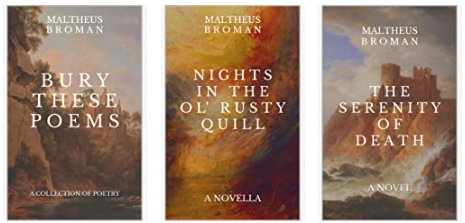
Have you ever struggled with writing any specific scene? What was your hardest scene to write and in which book? Why?
When I put pen to paper the story is already within me. It’s all there, which is to say I’d been thinking and dreaming about a certain story before I let my conscious mind get in the way of it all. So, I don’t struggle with writing at all, no, but I do suffer with my characters, since as the author I’m just as helpless as they are. I remember sobbing all through the night while writing Chapter Ten in The Serenity of Death. Interestingly enough, one of my earliest readers told me this chapter could have been stronger, if it had been longer. Naturally I took her advice to heart and followed it as good as I could, but, ultimately, the same words will strike different chords in different people. I don’t expect my first novel to be a crowd-pleaser anytime soon, but I hope it will be loved dearly by a few and passed around among circles of friends.
we must not take a novelist’s freedom for granted
We're not here writing for pleasing the crowd I assume as I see that death is a very common element or theme in your writings which is not something the mass would like to follow. Is there any specific reason that you write about this topic?
Well, it’s as they say: You should write what you know… Yes, death is THE central theme of all my books, even if it might not be obvious at first. How does death appear in different stages in life? How can we understand mortality? What may death teach us? Story-telling, perhaps in some ways even better than philosophy, enables us to give the devil his due and explore what’s to find in the void.
On the other hand, Nights in the Ol’ Rusty Quill handles these questions from the other side. Instead of asking what good might dying be, it poses the question what’s there to live for in sight of death in a world where you weren’t even asked to be born. In more than one way this novella pokes fun at anti-natalism quite a bit.
What kind of research do you do, and how long do you spend researching before beginning a book? Do you think research is necessary to write fiction?
It’s the other way around: I don’t research, because I want to write a novel; I feel the need to write a novel, because after years of research in some fields a story emerged. In my case it’s years of academic studies or courses in philosophy, sinology, sociology and economics, and in an indirect manner also my jobs in funeral businesses. Mountains of books have been swallowed in the makings of Globopole, but years before the idea of writing a short novel even existed. Every time its protagonist rants on about the importance of taxes and stocks in global politics, he figuratively stands on the works of Marx, of Hegel, of Malthus, of Wallerstein.
As a reader I can tell whenever research is done afterwards and forced upon the writing. In such cases the prose never comes natural and usually reeks of stuffy creative writing classrooms. But there are great examples of well-researched novels in which expert knowledge has been weaved into the pages organically. Heart like a Hole by Deckard is one such example, although she’s no doctor, and despite the fact that she’s seen creative writing schools from within.
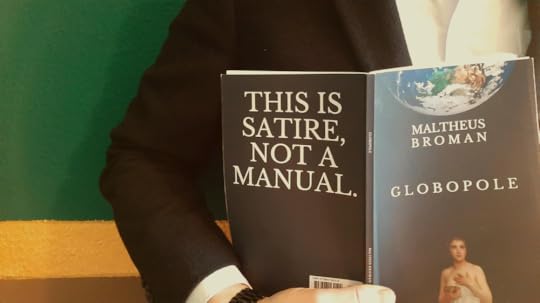
Interesting perspective toward research. May I know what inspires you to write?
Well, the life I lead, and the lives in the books I read. Just one example out of millions: I love learning everything there is to know about the Titanic. A Night To Remember is one of my favourite books about this tragedy. And her story inspired me to write a song about her sinking as a sort of eulogy by her builder, Thomas Andrews, who later knows her as his graveyard. The piece is called My Belfast Love.
In addition to this I also wrote new lyrics to Nearer My God To Thee, the last song that has been played on the Titanic allegedly, although in all likelihood they played ragtime till they drowned, because they were real good sportsmen back then.
the same words will strike different chords in different people
Thank you for sharing that with us. Lastly, is there any book you’re working on at the moment?
Yes, as a matter of fact I’ve written about sixty thousand words of my next novel. Its title is yet a secret, but I may already say the story draws some of its elements from my Parisian diaries as well as later personal writings of the past seven years or so.
Perhaps it will remind some readers of Hemingway’s A Moveable Feast. That said, I despise the term auto-fiction and I want to make clear that I myself will not be in the novel as a character, but I can’t deny that the story takes place during my own lifetime and many episodes hit very close to home.
So, if any literary agent out there wants to represent me and my second full-length novel, now is the time! And if not, I gladly continue on my own, because I’m pleased with all of my books and writing continues to be a source of profound happiness.
Wow, now that is a mystery I would like to solve. Anyhow, Mal, thank you for joining us today.
If you like to know more about Mal, check the following links:
Website Amazon Twitter Instagram GoodreadsFebruary 14, 2022
Literary Cubism - A Non-Structured Structure For Twenty-first Century Storytelling
The world moves faster these days. From political sound bites to the latest teen idol (who is it this week?) to the rolling scenes of music videos, things come, things go, other things take their place and then they, too, go. But literature, good literature, is meant for savoring. It lingers. Touches. Whispers. Long after the written words are gone from view, they play music in our minds. Herein lies the conundrum. How can twenty-first century literature be fitted to a world that moves faster, to a public who wants and expects a crashing avalanche of continuous enticement?
One answer: Literary cubism.

The Eleventh Edition of Merriam-Webster's Collegiate Dictionary offers a definition of cubism that describes an artistic style of abstract structure which simultaneously displays multiple aspects of the same object in fragmented form.OK.Hmmm...The "same object" in that working definition is my story. The "multiple aspects" and fragmented forms which I display include poems, e-mail messages, personal notes and legal documents, to name a few. And, yes, there's room and necessity for blocks of traditional prose in literary cubism.
Cubist writing is liberating. It adds to a writer's toolbox for telling his or her story. We've always had description and dialogue to set scenes, to build moods, and to create consistent, compelling characters. It feels good to now have the text of an e-mail message to do any or all of those things. We can also tap into poems, personal notes, grocery lists, and any other form of written media. These can all be used to great effect to show a lifestyle, to define a character's motives and psyche, or to paint the tensions and emotional contours of a relationship.
As I said before - liberating.
Enough about theories of liberated lingual expression; how does literary cubism play out in application? Pretty well. In a nutshell, "Resolution 786" tells the story of a philosophical, emotionally wounded American engineer who finds himself in combat operations in the Iraq War while simultaneously trying the Lord for crimes against humanity in a courtroom setting. Literary cubism made it possible to create the tapestry of a unified experience across these wildly disparate settings, an experience of spiritual self-realization in the context of a physical realization of human mortality. Cubism gave me license to develop this multi-pronged storyline and to build my central themes using a variety of literary media presented from the perspectives of many different characters. Indeed, one vignette consists mostly of a set of e-mail messages written by the mothers, wives, daughters, lovers and girlfriends of the soldiers fighting in Iraq. In writing that part of the novel, I was struck by the blunt directness with which an author can develop characters and define relationships through e-mail messages.
But as much license as literary cubism bestows, there are still some "Do Not Drive" lanes on this literary highway. Do not use incorrect grammar, spelling or punctuation (unless you're Cummings "sketching" a poem onto the page). Do not use flat, un-interesting prose. And, whatever you do, do not let your focus stray from telling a good story. The grandest literary artistry is for naught if you fail to tell a good story.
Yes, with literary cubism, you run risk of having your storyline devolve into un-integrated snippets of plot and story, but you run the same risk in traditional prose. Re-writing, revising and re-imaging enhance the integration of your multiple media. And as one of the characters in Resolution 786 explains while defending against the criticism of realism in Kafka's The Metamorphosis:
"I don't think The Metamorphosis really happened. Samsa didn't turn into an insect. If he had turned into an insect, he would have stopped considering his own consciousness. No, Samsa became a human being who was trapped inside an insect, which is fundamentally different than becoming an insect. And as far as being realistic, if a work of artistic expression doesn't have a traditional structure, that doesn't mean that, taken as a whole, it doesn't still have some valuable or otherwise instructive form or substance."
So go ahead and wake up an insect. Go ahead and put the Lord on trial. And feel free to use a cubist structure through it all.I find literary cubism to be a sharp, fresh and consistently interesting method for constructing novels. Considering how fast our world moves today, how flashed and multi-variant our entertainment media and tastes are, I'm surprised that more writers don't use cubism. It's an ideal structure for story telling in the twenty-first century.
More about the author: http://www.mohamedmughal.com
Article Source: https://EzineArticles.com/expert/Mohamed_Mughal/588622
February 10, 2022
Writer Vs. Researcher: Victoria Brooks
Today I have an exciting interview with beloved Victoria Brooks, holding a Ph.D. in law, sexuality, and philosophy. I found her through one of her research papers and as I loved her perspective, I found out about her book "Mistress Ethics". As I'm working on a new novel that has the elements Victoria is discussing about in her works, I reached out to her and she kindly accepted my request for an interview. Victoria is a writer and researcher on sexual ethics. She has published academic, media, and fictional pieces on the connection between philosophy and sex. I stop blabbering and let you get to know her through her own words.

Hello Victoria. I’m glad to have a chance to know more about you and share your wonderful words with my community. Could you introduce yourself a bit?
Hi Neda, thank you so much for interviewing me – it’s a great pleasure. I’m a writer with a background in academia. I’ve published two nonfiction books: Fucking Law (Zero Books, 2019) and Mistress Ethics (Bloomsbury, 2022). I’m now embarking on a career change to fiction writing. My debut novel is a queer sci-fi book forthcoming with MOIST Books in 2023. I also occasionally write essays and erotica.
Fantastic. I really enjoyed reading your book “Mistress Ethics”. Can you tell us about it a bit?
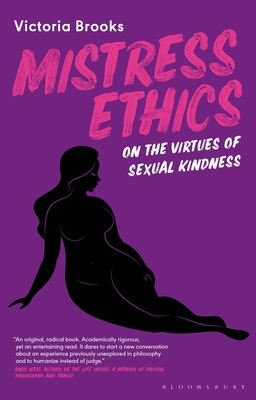
Mistress Ethics was an important book for me to write. It draws heavily on my own experience as a mistress, or as the ‘other woman’. Although she is a much-maligned figure, the mistress is also a mysterious one whose voice and story often gets lost among judgement and fear. She is also very often silenced by those in power – which is no coincidence, since those in power are often the ones who have mistresses they want to keep secret! This book was my attempt at creating a space for her story, and to reframe her as a revolutionary figure, like Anaïs Nin’s ‘spy in the house of love’ – a hero who draws attention to the failings of not only our relationship structures but also wider political and social structures. The book is my response to the place of the mistress in our society, and a call to hear her stories which can be painful to hear, or sometimes sexy to hear, but always necessary to hear.
I agree. It is necessary to read and write from and for the minority or the outcast, if I may. Could you explain about your background in writing and research?
I started out wanting to be a lawyer and so studied for a law degree, although I did so relatively late having worked as a legal secretary and caseworker for several years after I left school at 16. However, I realized quite soon that I did not want to be a lawyer, and instead pursued a PhD in law, sexuality and philosophy. Subsequently, I soon realized I also did not want to be in academia! After a career researching sexuality – particularly sexual ethics, I have happily realized that it is writing that is my drive and my creative practice, and that’s what I need to pursue. I then studied for an MA in creative writing, which confirmed for me that novel-writing is where my heart is, particularly sci-fi, and feminist and queer approaches to the genre. I love the new worlds and new bodies that can be imagined through sci-fi writing. I’m also a trauma survivor living with PTSD, so I am also passionate about incorporating this into my writing, and experimenting with ways in which narrative art can capture trauma and how it lives on in the body.
Impressive background and change. Can you identify a time that you found yourself attracted to this topic?
I have always been fascinated by sexuality, which I think is because I’ve struggled with it, like so many people. I’ve wanted to understand, and researching sexuality has meant that I have been able to scrutinize sex and sexual desire in great detail. But this has not, strangely, enabled me to understand! It has more been through understanding my own history, trauma, and embracing my bisexuality that I have understood what sexuality means for me. That is not to say that there aren’t still many exciting and wonderful mysteries though!
I have been through the same struggles, I can relate easily. Could you tell me what counts as transgressive behavior in general?
This is such an interesting question! I think actually it’s the most important question. I think it’s one we have to answer for ourselves. If something feels like we’re crossing a line, then it’s transgressing. This line will be in different places for everyone, and different in every context. I don’t think it’s always ethical to cross the line, but sometimes it can be – but this is a whole other question – whether something must be unethical for it to be transgressive. I think transgression is important to do in some contexts, because the line has to be challenged, but sometimes it’s important not to transgress – in the case of personal boundaries, for instance, and/or where there is a risk to ourselves and our safety, or that of others. I think in art though, in writing, transgression is always necessary! Although again, the ethics of that transgression will be another matter.
In the website “,the Church of Jesus Christ” there’s an article describing sexual transgression. I would like your idea on such views.
I think this piece has its roots in Christian purity culture, which has been and still is very damaging. This whole idea that sex is somehow innately shameful, or impure, is an idea that is deployed to control and punish people – particularly women and queer people. I don’t think that sex is inherently transgressive, but even if it were – this is a good thing. Sex can be powerful and exciting – it can shake things up – it can make us reflect on the place of ‘the line’. It can also be very pleasurable – and this is a good thing too, but reading the definition in the article, it would seem that in their view pleasure is not a good thing at all!
If something feels like we’re crossing a line, then it’s transgressing.

I'm wondering , in your opinion why historically and when has sexual adventure become transgressive?
I think this is a big question and quite difficult to answer. I think there has always been a drive to contain sexuality, because those in power need it to be contained. I think if we look back in time, in terms of religious origins, we only need to read the story of Adam and Eve to see that sex has always been the ‘forbidden fruit.’ Looking to Freud and Foucault, we can see that this idea has played out psychoanalytically as well as historically. I think sex has always been transgressive – in both the good sense of being powerful, but also in the bad sense of being manipulated into a weapon to shame people.
Wonderful answer. Thank you. As a writer, I write a lot of transgressive stories and include many elements of it. Currently, I’m working on a transgressive erotic. When I use that term, people mostly ask me what is count as transgressive sex. I was wondering what would you answer in my place?
Non-heteronormative, full-colour, pleasure-centred, taboo-busting, warts and all real, sexy description and narration of bodies and encounters that disrupt the expected (and accepted)!
in art though, in writing, transgression is always necessary!
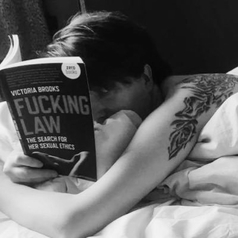
Wow. They will ask me about the definition of each. I think I better never discuss with these people about my novel. Another question about sex. Does sex necessarily need to be ethical?
No I don’t think so, but I guess we need to clarify what we mean by ethical. I think it perhaps needs to, ideally, be ethical to the individual, but inevitably that won’t always be the case, since we’re human beings and we have to learn how to be kind to others and ourselves and we make mistakes. I think the key thing is being intentional about understanding what we need sex to be, and how best we can ensure the pleasure and safety of those involved.
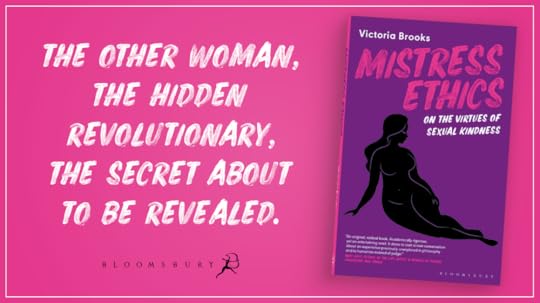
Last question. Do you have any upcoming books or articles? Anything you’re working on?
Mistress Ethics is my most recent book – I’d love for people to read it and let me know what they think! I’m also interested in potentially creating an online anonymous space for mistresses to share their stories. In the meantime, I’m mainly working on my debut novel, while also working on some short erotica pieces and essays.
Thank you, Victoria for being here and sharing your knowledge with us. Look forward to more collaborations in the future.
If you're interested to know more about Victoria Brooks please check the following links:
Twitter: @V_Eleuteria Instagram: @queermistresswifehuman WebsiteJanuary 28, 2022
Writer vs. Writer: Nathan Castellanos
Today's guest, Nathan Castellanos is an LA local who is not only a fantastic writer but is a book collector and reader. His stories include multi-genres and themes from horror to science fiction with a lot of dark comedy. The authors that inspire him, not surprisingly, are Bukowski, Robert Anton wilson and Chuck Palahniuk. Cut it short, let's get into the interview.

1.Hi Nathan.Glad to have you here. Random question. Any inspirational thoughts and ideas you’d like to share to start the interview with? And who is your biggest inspiration for writing?
Hmmm! Inspirational? That’s a tough one considering that inspiration is relative to the receiver; what enflames passion in one person may incite anger in another, or just plain indifference. The one thing that comes to mind for me is the concept of writer’s block. I’ve never believed in it, and I think that when a writer invests in the idea of its existence that this hypostatizes its validity into their belief system. In essence belief is powerful, so be careful what you do with it. Writers that are the biggest influence on my writing are variant, the most powerful being Robert Anton Wilson, Philip K. Dick, and Grant Morrison.
2. If you'd ask me that question, I wouldn't be able to answer as good as you. You’re a fanatic reader and book collector. Can you tell us more about that?
As far back as I can remember I’ve been reading, overthinking, uber-analyzing life. As a child I would critique the validity of claims made in advertisements between Saturday morning cartoons. I read whatever I could get my hands on; The Iliad, Dracula, Poe, Twain, etc. At the age of 18 I became a serious collector, and now at 40 my collection is roughly at about 2,500 to 3,000 books, including novels of every genre, books on philosophy, psychology, mythology, history, religion, and the occult. I’m a decadent consumer of every subject.

3. That's the ride many of us take, I assume. Can you tell us about your writing journey? Why did you become a writer?
That’s a sad story, that one. I believe the catalyst was finding my ex-wife’s phone open one evening after a long period of suspicious behavior on her part. My mind and heart was not nearly prepared for the sight of her giving copious amounts of fellatio to another man. Needless to say we parted ways, and my mind underwent a sort of logic and belief-free metamorphosis. To put it plainly, I lost my mind, and was only kept anchored to relative reality with the help of Grant Morrison’s Invisibles and Robert Anton Wilson’s Schrödinger’s Cat. These books gave language to the state I was in, and eventually inspired me to follow their narrative method, albeit with my own story.
4. What are your writing routine and habits?
NITRO COLD BREW, and lots of it! Most of my writing is fueled by copious amounts of caffeine, zazen meditation, irritating run ins with the elitist gentry of Los Angeles, and the concepts/information that I take from books on various subjects, ranging from Los Angeles history, nano-technology, martial arts, culinary, and the occult (Thelema, Chaos Magick, Jungian Gnosticism, Tarot Archetypes, etc). After a while every subject is all one big homogenous piece of so called reality; there are no genres in “real” life, so why limit yourself to just one in your writing?
5. let's talk bout your latest novel, without spoilers, can you tell us what is this book about?

Salted Plastic starts out as a scathing diatribe against gentry in every facet of Los Angeles society; night club culture, overpriced eateries that mask their subpar food with ostentatious marketing/atmosphere, the life hacking nature of influencers relative to pop-culture, the culture clash of the individual with the memetic communal socialization of hipster millennial culture. About a third of the way through though, and the reader gets a preview of how reality is not what it seems, that the perpetrators of gentrification and cultural appropriation are not human, but monsters set on nothing less than farming human culture via the manipulation of real estate, pop culture, and academia.
6. For me Transgressive fiction and non-fiction are the best way to express oneself and what is wrong with our society. Do you find your books fall under this category?
I feel, like Philip K Dick, that my books are a commentary on the modern world as seen through the type of empirical analysis that can only usually be gained when one is a misanthrope or Saint-grade cynic. Like Dick I utilize the themes of sci-fi, fictional narcotics and psychedelics, overt and obscure dystopia, cognitive dissonance, dark humor, etc. as a sort of Rosetta Stone for those with the emotional content (life experience) necessary to feel what I’m saying, as opposed to just “understanding” what I’m saying. My point being that there is always plenty of non-fiction in fiction, and the themes of genre are just a veneer to add marketable flare. Dick knew this only too well.
7. Are you currently working on other books? Can you tell us about your future or current projects?
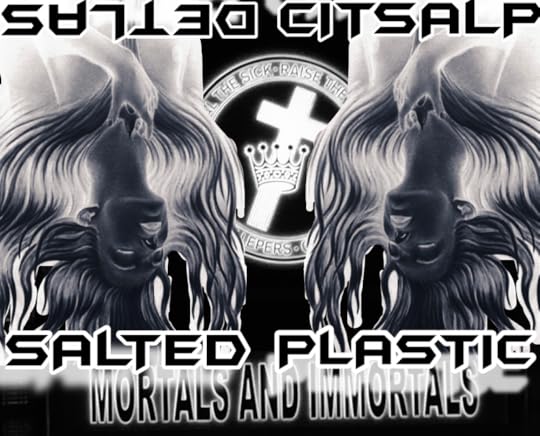
I have a few concepts in the works, but at the moment I am focusing solely on Salted Plastic. The main project that I have set aside for the future is called House of Fortune. The plot revolves around a reality where human beings are sold at birth to monstrously abusive undead families that inure the adopted human to emotional, physical and mental abuse, leaving them in a mental state where they are completely convinced that love is synonymous with horrific things like having your toes eaten at the dinner table by a mortified infant, or being force fed your own excrement in front of your fiancée till they leave you in disgust while your mock family watches with malevolent delight.
8. About publishing process. Would you mind explaining how did you get your book published? As Transgressive genre is quite a difficult and risky genre to publish classically, I’m curious to know more about your experience in this field?
I knew that the subject matter and presentation (style) of my book would not be welcome at the time (2015), so I took the route of self-publishing. That said, I also anticipated the steadily emerging shift in culture that has gained headway the last two years. Meaning that the ever growing culture clash has been highly apparent in recent years. This is emphasized more and more by the growing housing crisis, and lower class resentment towards “high” society that has been seeded by gentrification and the theft of the working class identity by noveau riche technistocrats, blue blood trust fund children feigning a revolt against the 1% society that they came from, and various local politicians that are only too eager to turn a blind eye to the displacement that their city planning logistics leads to………all of the above has fueled a growing interest by mainstream readers in my book, and I believe that this will lead to an opportunity for me to publish via mainstream publishing houses.
9. Lastly, what advice would you offer to writers, many of whom are struggling to be creative right now, on how to keep momentum on the work when the world around feels somewhat stranger than fiction?
I would say that strife is great fuel for artistic endeavor. I understand that a lot of ivy league and academia cemented types have a general idea of writing under so called “perfect conditions”, but as someone that utilized extreme emotional pain, loss and the resentment of being priced out of my home town to create my own work, I simply cannot invest in the idea that life needs to be ideal in order to create. The greatest (and most novel) art has historically been generated by the worst epochs of history.
Thank you once more
My pleasure. I was great to have you for this interview.
If you're interested to know Nathan more, you can check his Linktree:
January 20, 2022
Writer vs. Poet: Austin davis
As a young poet, Austin create a poetry novella LOTUS & THE APOCALYPSE that is coming out from Outcast Press on March 1st! It's not only what he writes, Austin in my idea is a symbol of poetry himself. Why? Read to learn more ;)

Hello Austin and Happy New Year. Let us begin with new, could you share a bit about “Lotus and Apocalypse” poetry novella?
Lotus & The Apocalypse is a poetry novella about the last day on Earth. This concept is explored through meditations on the past, guilt, addictions, mental illness, death, loss, love and more, as Lotus tries to figure out what the point of life is before it’s too late.
I have ADHD, OCD, Tourette’s Syndrome and other mental health issues, and I wrote this book when I was struggling a lot. Writing these poems helped me climb out of the hole I’d fallen in to, and for that I feel grateful.
I lead a homeless outreach program, and during the composition of this book I reversed overdoses, saw people die, and experienced some pretty scary stuff. Writing these poems also helped me process these experiences and I’m so excited for the world to be able to read it!

That's the purpose of writing. A way to express and ease any difficulty or pain. Why poetry novella and why transgressive poetry? What about these attracts you?
I’ve always loved poetry as a container to tell a story. It feels so magical to me that in such a small space such huge worlds can be explored. The beauty of a poem is that after you’ve read it, it doesn’t end. 5 years from now I’ll likely read a poem again that I just read recently, and I’ll gain something completely different from it then than I have now.
Maybe you’ll read a poem and when you’re moving through your day later you’ll see something that reminds you of a certain line from that piece. Poetry is connection and connection is love.
My goal with poetry is to write something that people think of when they’re going to sleep at night, something that sticks with you and you can’t let go of.
With Lotus & The Apocalypse, I wanted to create something that told a narrative story, but also explored and pushed the boundaries of what a story is and what a poem can be. Everything in art is fluid, and I love that. To me, transgressive literature is honesty. It’s uncomfortable and pushes the boundaries of what we share with each other through content, in the way I also aim to push these boundaries with the structure and form of this book.
in my chest there’s a tiny me
that wants us both dead
inside his chest
there’s an even tinier us
that wishes only for love
Beautiful. You can be the Shakespear of our time very soon. When did you find yourself attracted to transgressive literature? Why?
I’ve always connected most with art that doesn’t hold back, that speaks the truth. That’s one thing I love about transgressive literature. The best way for us to grow personally and as a world is to show people the perspective we know, and to listen and learn from others, especially when it’s difficult.

I understand. How about an early experience where you learned that language had power?
I have OCD. When I was a kid, I remember feeling pretty confused about the thoughts in my head. OCD is all about fear. It’s about having this terribly scary fear that feels so real, and your brain tells you to complete some compulsion to make it go away. Your brain lies to you and says that if you do this thing, you’ll feel better, but the thoughts always come back if you give in to the compulsion, and they get worse and worse.
One of the first slam poems I was introduced to was “OCD” by Neil Hilborn. This was the first time I saw something in an art form about OCD that I could relate to. I felt seen and comforted and it was so inspiring that Neil could be so honest up there on that stage. That made me want to speak my truth and not give a fuck and try to connect with others in the same way he connected with me.
I can't imagine how difficult it was for you as a kid dealing with OCD. And i'm glad you discovered the power of poetry. Can you tell us about “Lotus and Apocalypse” publishing process?
The publishing process with Outcast Press has been so incredible. Sebastian Vice is one of the kindest and most incredible people I know. I feel eternally grateful for the many ways that he champions my work and so many others.
Natalie Nider edited this book and she did an amazing job. Paige Johnson formatted the interior and did all the design. I know it’s my book, but I can confidently say that it’s definitely one of the most beautiful books I’ve ever seen and that is 100% because of Paige’s genius design skills. Each poem is paired with a complimentary illustration. I never imagined it could look this beautiful. Before Natalie and Paige, LOTUS was like a glob of clay that hadn’t entered the kiln yet. They set that shit on fire and turned it into a vase!
Cody Sexton from Anxiety Press created the front and back cover art. I gave him a (probably very confusing) description of what I was thinking for the cover, and he made something that wildly exceeded anything I’d thought of before. This book took a team to create and I’m so grateful for everyone!
Austin. What inspires you the most writing poems?
I know that for me, poetry and music have saved my life in countless ways. The power of art is what inspires me. More than anything, I just want to write something that helps someone feel less alone. Being a human can be pretty exhausting and difficult. I think it’s all a little less heavy if you know someone out there has gone through something similar to what you have experienced and has made it out on the other side alive. We’re all on the same Earth and we all need to look out for each other.
I’ve a request. Can you tell us a short poem for this interview?
Sure! I’ve never written a poem specifically for an interview before, but I love that idea. Here’s a poem just for you, that I wrote right now, tonight, sitting on the carpet under my lamp while drinking a beer.
WAKE UP, FLIP A COIN
if it’s heads
i take a shower, get dressed
& wait for the plug to come by
at the end of the day
if it’s tails
i pop an addy, pound back a pint
& walk through neighborhood lawns
wearing only socks
eyes closed, if a car hits me
or i wander into the cemetery
& fall into an open grave
at least it was predetermined
in my chest there’s a tiny me
that wants us both dead
inside his chest
there’s an even tinier us
that wishes only for love,
for a second to breathe,
to plant a seed tonight
& find a flower in the morning
we all crave
to lay in the grass
& feel the sun
right?
RIGHT! This is a superpower Austin. Beautiful, sensational and brutal at the same time. It's a hair-standing type of a poem. To finish this interview, what are your goals as a writer for this year?
I’m so excited for Lotus & The Apocalypse to be released. My main goal is to get this book into people’s hands, and see what they think. I’m going on a national tour in March which is going to be so fun. I’ll be touring around Arizona first, then I’ll be hitting the midwest, and then ending up on the east coast. I’d like to turn Lotus & The Apocalypse into a punk rock opera. I love collaborating with people across different artistic mediums, I love punk, and I think this story could be told in new ways on a sonic level.
Thank you so much for taking the time to interview me. It really means the world to me.
Thank you, Austin to be here with us. You're an inspiration and a masterpiece. Wish you the best of luck in your writer's journey. Stay Safe.
If you're interested to keep in touch with Austin, please follow these links:
Twitter: Austin_Davis17 Instagram: austinwdavis1 https://msha.ke/austindavis/January 13, 2022
Writer vs. Writer: Nevada McPherson
This post is about an author with the power of transgression. Nevada McPherson has written mostly screenplays and her recent book published by Outcast press, "began as a feature screenplay," says Nevada, "then as I was adapting it into a TV series, I decided to adapt it as a novel first. I got the idea for new characters and storylines so I decided to make the novel a series." Poser is the first in this new series called the Eucalyptus Lane Novels. It's set mostly in and around Palo Alto and San Francisco, California, inspired by summers she used to spend there. Let us absorb some inspiration!
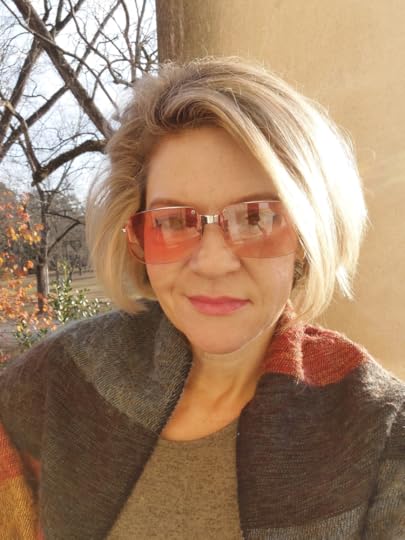
1. Hello Nevada. Happy new year and new "book". Let us begin with your novel series. Can you tell us a bit about it?
Happy new year, Neda! Yes, the Eucalyptus Lane series begins with Poser, set mostly in Palo Alto, California. The main character is Ambrose, a runaway from Texas who ends up in the Bay Area and falls into drug dealing while working part-time at an S&M dungeon in San Francisco. Through a series of mishaps, he angers his connection and finds himself again on the run. His friend suggests he stay at her sister’s guest house in Palo Alto and gets her sister to agree to this by telling her that Ambrose is a Stanford grad student, so Ambrose finds himself having to pretend to be something he’s not. He also falls for his friend’s sister, who’s married and has a small child, leading to further complications. Throughout the series, Ambrose is a magnet for trouble, and his efforts to go straight give way to a steeper slide toward more serious criminal activity.
the story is told as the author really sees it, unfiltered by prevailing attitudes of propriety or political correctness.
2. Sounds interesting. Do you only write novels, or do you work on other types of writings as well?
I’ve mainly written feature-length screenplays, three of which I’ve adapted into graphic novels and one short script that I directed as a short film. I also write short non-fiction, have some short stories in progress, and was commissioned to write a short environmentally-themed play that’s been performed several times.
3. Wow. You're a multi-talented author Nevada. When did you realize that your work is more of a Transgressive genre? Why?
I had a hard time defining my work at first. I’d broadly categorized it as noir, but there are many different aspects of noir, and initially, when I looked for a publisher, I didn’t see a place that really stood out as a good fit. It wasn’t strictly crime fiction, although it certainly has that. It isn’t a conventional romance, either. It was reading Twitter posts by Outcast Press, which eventually became my publisher, that helped things click for me, including blog posts by their assistant fiction editor, ,Natalie Nider of Trainwreck Tendencies. These clarified what transgressive fiction is and helped me to make the connection between that and what I was doing in my own work.
4.Great. I agree that this genre has many similarities with other genres such as noir, dirty realism, absurdism, and so on. What is it about the Transgressive Genre that attracts you?
That I don’t have to water down or censor my story nor the details in it to write in this genre. I can write about whatever I find the courage to, without the limits of more typical genres. Like noir, transgressive fiction can encompass many different styles and subjects, which I find very attractive!
5.You can say that again. Self-censorship is what I learn to avoid while writing in this genre. That's the reason, in my workshops, I encourage people to practice this genre as a tool for expressive writing and helping to ease depression, anxiety and stress. However, anything Transgressive is not a comfortable genre to publicize and publish, could you share with us your publishing experience about your novel series?
My experience has been very positive. As an outlet for transgressive fiction, Outcast Press not only talks the talk but walks the walk regarding creative expression and freedom of speech. I’m happy to be published by a company willing to take a chance on my work and that of others who write in this genre. Much like City Lights in San Francisco, which broke new ground in the 1950’s by taking a chance on writers whose work was outside the mainstream at the time, Outcast is an avant-garde publisher for the 21st century and I’m thrilled to see my work in their line-up!
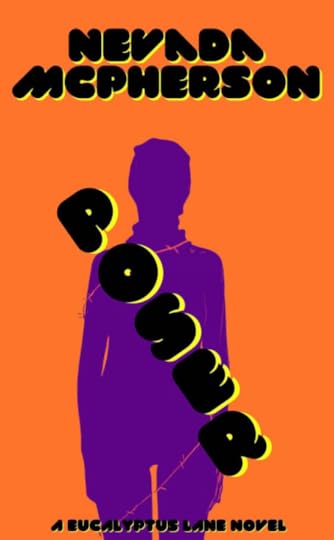
6. What do you think makes a good transgressive story?
That the story is told as the author really sees it, unfiltered by prevailing attitudes of propriety or political correctness. Also, that the characters are allowed to be their truest, unvarnished selves: raw and real. Transgressive stories usually deal with characters who chafe at society’s strictures and conventions, so how they deal with that is bound to take various forms. I love that this is something transgressive fiction seeks to thoroughly explore.
7. Well said. Are there any characters in your writings that most represent you? How?
That’s a very interesting question! I think all my major characters represent facets of myself or people I’ve known in one way or another. We all have a side we present to the world, but also have “backstage” views of our own lives, so maybe putting elements of my own personality, both good and bad, as well as a certain amount of fear, anxiety, pleasure and pain on display through my characters is a way of pulling back the curtain on things that would normally stay hidden from view. Perhaps writing about those things through my characters is even exhibitionistic in a way. I hadn’t really thought of that before, but it could be true.
8. What are your goals as a writer for this year?
My main goal is to work on the second and third novels in the Eucalyptus Lane series. I also plan to revise the pilot script for Poser I was writing earlier, which is actually how I got started writing the novel in a roundabout way, and where I created some minor characters who became major. In addition to that I’d like to set aside time to revisit a draft of a novel I wrote some time ago about the life and times of Erich von Stroheim, the silent film director and actor who played the butler in Sunset Boulevard, and whose epic battles with Hollywood’s biggest producers is the stuff of legend. I’m also writing a new short story and will be posting more often on my blog.
Fantastic. Thank you Nevada for being here today. You're an inspiration and look forward to future collaborations.
If you're interested to know more about Nevada, please follow these links:
Web site: www.nevada-mcpherson.com Twitter: @NevadaMcPherso3 Instagram:@nevadawritesJanuary 6, 2022
Writer vs. Writer: Jack moody
In this post, I will have a chat with Jack moody, the author of Dancing to Broken Records anthology, staff writer of the literary magazine, and podcast Brick Moon Fiction, about his upcoming transgressive autobiography. This autobiographical novel is about his experiences over a couple of years after checking in to a psychiatric hospital in 2018 when he was only 24, and all the fallout that followed from his pretty severe alcoholism, Borderline Personality Disorder, and PTSD. Let's dig in :)

Hi Jack. Happy New year and Happy New Book. Let’s start with your
Autobiographical novel “Crooked Smile”. Why did you choose this
title?
It began with a conversation I had with an old regular at the bar I used to frequent. When I was an infant, I had a stroke. It paralyzed a lot of the muscles in the right side of my body—luckily nothing horribly debilitating—but it did cause me to lose pretty much all dexterity in my right hand and affected my facial muscles. When I smile it’s lopsided. So I was talking to the guy about this, and he told me that it wasn’t a result of a stroke, but it was my body showing me what my mind was trying to tell me: That I thought I was a happy person, but really the life I was living was killing me, and somewhere deep inside I understood that I was masking my depression with substances, and telling myself that I was content. Obviously, this was a fuckin’ stupid diagnosis from a drunken barstool philosopher, but he wasn’t wrong. And the metaphor was interesting to me. So that’s a running theme throughout the novel—this character stumbles through his life, abusing alcohol and creating chaos everywhere he goes, telling himself that he enjoys the drama and chaotic nature of his lifestyle, but really this is just something he has to tell himself, because otherwise he’d have to face the deeper reasons for why he is an alcoholic and why he constantly exhibits all this self-destructive behavior. And over the course of the novel he’s forced to reconcile with these things, looking inward at the root causes of his behavior, and has to then make the decision to either change or accept that what he’s doing is going to kill him.
I was a happy person, but really the life I was living was killing me
I wonder how many of us feeling the same and keep ignoring it. Without spoilers, can you tell us what is this book about?
Crooked Smile is about a person’s rock bottom. It’s about the results of years of ignored trauma and mental illness, left to fester beneath coping mechanisms until those mechanisms no longer work, and the fallout spills over into every facet of that person’s life. I suppose it could be considered a recovery novel, but that’s an oversimplification. At it’s core, Crooked Smile is a black comedy about an anti-hero who is thrown through the ringer by his own actions, and has to finally make a decision—whether or not to tear open unhealed scars and treat the spiritual infections left underneath—when forced to come face-to-face with the inevitable bleak outcome of the life he’s chosen.
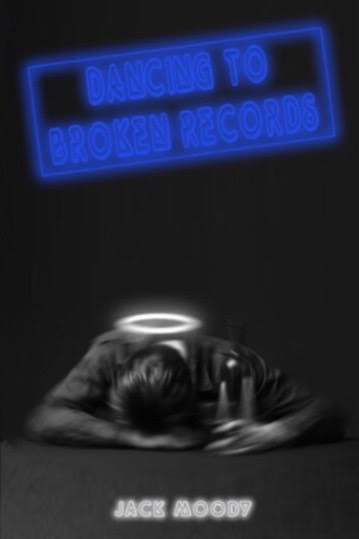
But it can be a recovery novel. For me, Transgressive fiction and non-fiction are the best way to express oneself and what is wrong with our society. What is your reason to categorize your writings under this genre?
Honestly, I don’t really consider my writing transgressive fiction. People do, and that’s fine, but I just write stories about real people. And when you don’t shy away from the true nature of people and reality, it will inevitably skew towards darker subject matter. People are fucked up. Life can be fucked up. My goal with my art is honesty—to paint true, three-dimensional portraits of my characters, warts and all. I want the reader to be able to sympathize and find commonality with the types of people they’d normally dismiss or demonize. We all have trauma, and methods of coping with it, and some people embrace that while others don’t. I just want to display the humanity and depth of those who people would be quick to paint as the villain. Because I believe that the vast majority of people who do wrong, even evil things, aren’t inherently evil. They’re in pain. And when you understand that, it’s much easier to relate to and sympathize with those people, even if you don’t like who they are. But you don’t have to. Just see them as human, like everyone else. That’s my goal as a writer. If that makes it transgressive, then so be it.
Agreed. That's why in an article I argued that Transgressive fiction is more about real people than just sex and brutality. Are you currently working on other books? Can you tell us about your future or current projects?
Well, my first book Dancing to Broken Records, a collection of short stories that features some vignettes of the same autobiographical main character in Crooked Smile, has a 2nd Edition coming out on January 21st through Beacon Publishing Group. The preorder is available now. It serves as an effective prequel to my debut novel, so I think it’s worth reading if anyone plans on buying Crooked Smile when it releases through Outcast Press on March 15th. I’m also about a third of the way through my second collection of short stories at the moment. I don’t have a set title yet, but I’ve been branching out into different genres—more surreal stuff, horror-esque stuff, but also a fair amount of dirty realism and a bit of autobiographical fiction. I’ve been getting the stories published in different literary magazines as I write them, so there are already quite a few out there to read that will be in the final, full-length book: The stories Theo’s Masterpiece, The Absence of Death, An Occurrence at the Funeral of Joshua Miller, and Pink Elephants are all out now with the amazing magazine A Thin Slice of Anxiety. There’s also one autobiographical short story out now with Horror Sleaze Trash titled Welcome Home, Inmate #Whogivesashit—about my experience going to jail at eighteen—that will also be in the collection.

That's inspiring. About the publishing process. Would you mind explain how the novel “Crooked Smile” is published? As the Transgressive genre is quite a difficult and risky genre to publish classically, I’m curious to know more about your experience in this field?
I found out about my current publisher, Outcast Press, through Natalie Nider, who now works for them and actually ended up editing the novel. (Congrats and thank you, Natalie.) I knew that Crooked Smile would be a tough sell, given its tone and subject matter, and Outcast seemed like a really progressive and risk-taking press (turns out they absolutely are) that we're looking specifically for books like mine. The founder and EIC Sebastian Vice immediately saw what I saw in the book, and accepted the manuscript right away. I’m incredibly thankful for him, Natalie, Paige Johnson—who does beautiful work with editing and formatting the manuscripts—and everyone who’s a part of the Outcast team. They are all fantastic at what they do. I can’t speak highly enough of Outcast Press and the whole process of getting my novel published with them. You are right though, work like mine is a difficult thing to publish, and partly because of that it’s been difficult to break into this industry. Most magazines, presses, and agencies aren’t interested in the type of controversy it tends to drum up. But there are places out there for more fringe artists, and I’m thankful for the impact that my work has been able to have in the literary world—however small it may be.
Last, what advice would you offer to writers, many of whom are struggling to be creative right now, on how to keep momentum on the work when the world around feels somewhat stranger than fiction?
My advice is not to take my advice. I say more stupid things than smart things. I honestly don’t know how I’ve made it this far. Dumb luck and bullheadedness, I suppose. I’m a pretty fucking good writer, though. I won’t take that away from myself. I’m doing what I was meant to be doing if such a thing exists. I’m very thankful for the mind and the life I’ve got, warts and all.
Thank you, Jack, for joining us, and can't wait to get my paws on your new book. If you're interested to know more about Jack and his books please check the following links:
Twitter: @jack_is_moody Instagram: @jack_is_moody Link to Dancing to Broken Records 2nd. Edition preorder: AmazonJanuary 4, 2022
The Curious Case of J.D. Salinger
The past two years have bestowed an unfamiliar amount of extra downtime thanks largely to the pandemic as we acquaint ourselves with how to work online. Less traveling, more home-cooked meals. Indeed, time extended its warm hand and indeed, I accepted. As a result, an opportunity presented itself for me to grow my book collection, dust off the shelves and spend more time reading in a pair of boxer shorts sprawled out on the sofa. (not the greatest look I admit).

In these peculiar times where human segregation is the flavor of the month and mental illnesses can take shape easier, I found it so fitting that J.D. Salinger's 1951 classic The Catcher in the Rye would stumble upon my desk once again. The gripping story of an emotionally unstable teenager struggling to make sense of the world holds greater relevance now than it did upon its controversial release seventy-one years ago. While the novel is an undisputed masterly work of art, the account of what happened to the author himself is a tale just as compelling as the one he wrote.
The recluse is producedOver the course of Salinger's ninety-one year lifespan, he wrote a bunch of short stories and novellas either side of this legendary full-length novel. But it was one full-length book and one only that was published. Shortly after its publication, he went into full lockdown mode and refused to give any interviews moving to a quiet, discrete secluded hamlet in New Hampshire. One could be forgiven for thinking there was a virus on the loose, Although, without running
water, electricity or even a telephone in his lodge, it would have been like quarantine on steroids.
Hermit life had well and truly begun and observing Salinger out in public from here on in would have been akin to detecting the abominable snowman himself. He would confine himself to this secretive little cottage for the remainder of his life. He had become a loner. But what's interesting is how he arrived at this point in time.
 Pre-1951
Pre-1951 Salinger was born into a Jewish family in New York in 1919. He was an average student who got average grades, who eventually became a college drop-out. Soon after, he was drafted into the war following Japan's attack on Pearl Harbor where he served for 2-3 years, interrogating the life out of prisoners and fighting in the Battle of the Bridge at Utah Beach. He also had a nervous breakdown shortly after he was relieved of his duties and was omitted to hospital. But his days in the military on the frontline where he undoubtedly was witness to unimaginable atrocities is often the most overlooked aspect of his obscure life.
This is especially true nowadays with a little thing called post-traumatic stress disorder (war-related stress) which came into being in the 1970s. However, back in the mid-forties, anybody displaying associated symptoms perhaps would have been viewed as just somebody who got out of the room side of the bed that morning. Or that you're just plain weird. Assuredly, the moment our man J.D Salinger put on a soldier's uniform, heard the barking of machine gun fire or saw a dead body in the trenches, the molding of the recluse began, before any best-selling novel hit the bookstores.
Post-1951With The Catcher in the Rye gaining worldwide attention, Salinger scrambled out of the public eye and retreated to his sanctuary in New Hampshire. The media began making comparisons between the book's downcast, isolated, young protagonist Holden Caulfield and the introverted author himself, a claim that Salinger acknowledged. "My boyhood was very much the same as that of the boy in the book, and it was a great relief telling people about it."
Having married a 19-year-old when he was 34, a 21-yr-old in his 60s, an affair with another 19-year old when he was 53 (You can read all about it here in Joyce Maynard's disruptive 1998 memoir At Home in the World.) as well as numerous other examples of Salinger taking a liking to young women and his fanfare gathering momentum, the outside world began drumming up the idea that Salinger could be a pedophile. "It's clear that he has a longing for childlike innocence in a woman. That's not a crime but it's emotional abuse," said Maynard of her eleven month relationship with him in the early seventies. Some saw the publication of her memoir as a means to make a quick buck while others gave it more credence and dismissed it as a smear campaign. Make of that what you will. Either way, he was labeled a womaniser or something more sinister by thousands of people.
We have now already painted a picture of a man who has been dragged through the prickle bush and a sizable one at that, but we're not done. In 1986, he sued a writer, Ian Hamilton for publishing a biography about him that exposed private letters that he never apparently green-lighted. Then there was the rumor that he feasted on frozen peas for breakfast and only possessed one testicle. The hits just kept on coming. Salinger's reclusive nature may have been born long before he escaped to his hideaway in the woods of New Hampshire, but people
seemingly threw more fire on that wood and fueled his unsociable ways as time marched on.
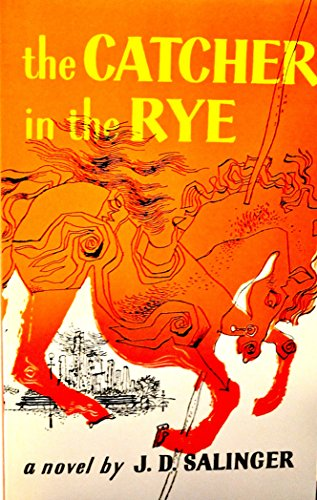 The legend lives on.
The legend lives on. Perhaps J.D. Salinger is equally an enigma as the sixteen-year-old character Holden Caulfield he created all those years ago. Or perhaps not. What is apparent however are the insights we gain and the lessons we can learn from studying the life of a recluse. Do we learn to embrace empathy more or do we turn more inward and become more cynical? Either way, I look forward to the spirit of J.D. Salinger The Catcher in the Rye living on. Who knows, we may even be graced with a film adaptation of the novel someday. (if Salinger's private estate ever grants consent). Dream on.
December 10, 2021
Writer vs. Writer: Guy Portman
Couldn't wait until I finally post this interview. It's a fan interview with one of her favorite authors, "Guy Portman". Before dive in, you can get a free copy of Guy's book "Golgotha" by subscribing to his website by clicking here. It's one of my favorites of all time.
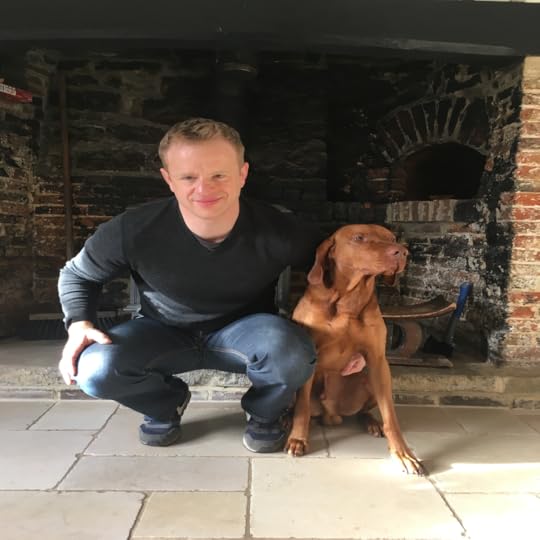
As a reader of your books, first I want to say it’s an honor to have you for this interview. We’re living in some crazy times—how are you doing through all of this?
Thank you for hosting me, Neda. Well, I’ll be frank. I didn’t have a life before the pandemic, and I won’t have one after. Of course, we’ve all been affected by lockdown’s etc. in different ways. As an introvert, it’s been easier for me than many others. That’s not to say that I’ve escaped totally unscathed. One way I coped was writing. That shouldn’t come as a big surprise, as I’m an author. Living in the countryside has helped too.
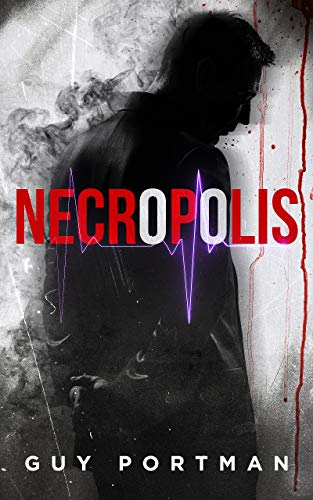
Now about Narcopolis Trilogy as one of my favorite Transgressive works of fiction. May I know where do you see yourself in the world you’ve created?
Thank you Neda, I’m flattered. It’s actually called the Necropolis Trilogy. Now, you’ve got me wondering why I didn’t call it the Narcopolis Trilogy. Is it too late to change? On second thoughts, it might make readers think the books are about narco police, which they’re not by the way for anyone reading this.
As for where I fit in with my creation, I believe I share protagonist Dyson Devereux’s caustic sense of humor and cynical worldview. However, I stress that unlike my anti-hero I am not a sociopath. Life might be easier if I were. Really, I just see myself as an observer of the world I’ve created. Good question, I’ve never really thought about it until now.
Oh, sorry. It's typical me. Always with the wrong spelling in my head. Transgressive fiction was a term I learned about two years ago, but I have read books in this genre since I was a teenager. How about you? When did you find yourself attracted to transgressive literature? Why?
That’s interesting, Neda. Same with me. I didn’t know what Transgressive Fiction was until I stumbled across the term some years back. I read two works of transgressive lit back in the day. American Psycho and Irvine’s Welsh’s Porno. It was about seven years ago that I started reading the genre in earnest. Why? It appeals to my nature like no other genre out there.
I’m curious which character in your writings most represent you? And which one is your favorite and why?
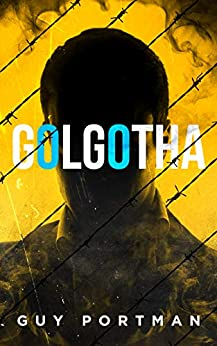
I’m definitely not going to say the dude in the first story in The Gazebo, considering his sexual predilections. I’d like to say Ken in the story Grower in Mangetout, but no he’s not me. It’s got to be Dyson Devereux. I’m not as sophisticated, or anywhere near as successful with the opposite sex, but as mentioned previously we share characteristics. As for your second question, Dyson is my favourite character too. After all I’ve devoted three books to him.
Who is your biggest inspiration when it comes to writing?
You, my readers. Of course authors I am fans of have inspired me, but it’s getting positive feedback and love from readers that inspires me the most. Sounds a bit soppy that for a Transgressive Fiction author doesn’t it?
Haha, indeed. Do you think Transgressive Fiction is outdated?
Hell no. I just don’t think Transgressive Fiction is being labelled as such. It’s more a term us authors use I believe. Take the bestseller My Sister, The Serial Killer by Oyinkan Braithwaite. On Goodreads it is labelled as crime, mystery, African etc., but not Transgressive Fiction as a primary genre. So, to surmise I would say the term might be outdated, but the genre isn’t, it’s just masquerading or being labelled as another genre/s. Further evidence of this is the fact very few would-be readers type ‘Transgressive Fiction’ into the Amazon search bar every month. I was shocked when I saw the numbers a few months ago. It was under a hundred searches for the month I saw on Amazon UK.
Interesting. I actually was thinking what other genres we can categorize our writings under. What advice would you offer to writers, many of whom are struggling to be creative right now, on how to keep momentum on the work when the world around feels somewhat stranger than fiction?
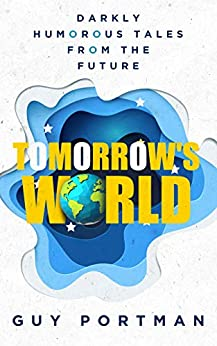
If they’re anything like me, it’s about routine and consistency. If you fall out of the habit, it’s difficult to get back into it regardless of what’s happening in the world. Once it is a habit writing is easy, well some of the time anyway. I appreciate not everyone is the same as me.
If they don’t feel like writing don’t, unless they have to to put food on the table from their writing that is. Do something else. Read, learn a language etc. Come back to the writing later. Even if the world feels stranger than fiction, it shouldn’t affect your fiction. If it does, maybe you’re looking for excuses.
Great advice. Thank you. Last question. Are you able to share anything about what you’re working on next?
Yes, I sure can Neda. Currently, I am working on expanding the Necropolis Series (no longer trilogy). A fourth instalment, Emergence, is being written presently. I am also rewriting part one, Necropolis. It will be relaunced as a new book. I wrote it when I was an inexperienced writer, and while it garnered some great reviews, it just wasn’t up to the standard of the next two books, soon-to-be three, in the series.
I am also in the process of penning a novel about the blight upon society that is cuckooing (drug gangs taking over vulnerable people’s homes). The Cuckoo will be released next year.
Thank you once more
Thank you Guy. It was a pleasure knowing more about you. Looking forward to future collaboration.
If you're interested to know more about Guy Portman, you can check the following links:
https://www.goodreads.com/author/show/6455862.Guy_Portman
https://twitter.com/GuyPortman?ref_src=twsrc%5Egoogle%7Ctwcamp%5Eserp%7Ctwgr%5Eauthor
December 2, 2021
Writer vs. Writer: Domenic Marinelli
Here we are yet with another amazing transgressive writer, Domenic Marinelli. He's a freelance writer and a journalist from Montréal, Québec, Canada and he has written 15 novels. Let's get to know him through his own words.
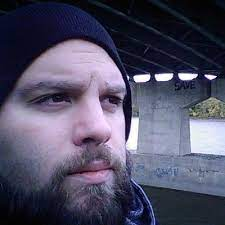
Hello Domenic. Glad to have you here. Could you introduce yourself and tell us a bit about your writing process?
I’d just like to start off by saying that it’s an honor to talk to you today. I’m a journalist, freelance writer, and author of 16 novels. I’m from Montréal, Québec, Canada. The genres of my books range from Transgressive fiction to neo-beat poetry and prose, as well as crime, action thrillers, and horror novels. I like to kind of write in multiple genres because I love to read multiple genres.
I was first published at 10 years old in a school board periodical. I was published again the following year and by the sixth grade, my teacher, Mr. Summers suggested to my mother that I cultivate my writing, and so I did, by reading a lot and writing a lot as the years went on.
I first started sending stories out to professional magazines back in 2010, having worked on a number of them from when I was very young. I piled up a lot of rejection slips but I kept at it. Money was tight, but I had conviction that I’d eventually get somewhere and be able to pay my way in life doing what I loved, which was writing. I worked a bunch of odd jobs over the years, and despite having a teaching certificate after I was done with school pretty much, I worked as a video store clerk, office and warehouse clerk, dental equipment technician and cook.
Back then, when I was first sending stories out, like I mentioned, money was tight, so I didn’t even have an internet connection. I would go to the local library to use those computers, as far as connecting with publishers and all, but at home, I worked on an old typewriter, believe it or not. I’ve said this before in podcast interviews, but my conviction for my writing and my lack of conviction for the odd jobs I worked led me to going bankrupt twice. That’s how much I believed in my work. I was ready and willing to face financial obscurity twice. And boy did I face obscurity. Some days I wondered where the hell it was all going, but I kept at it.
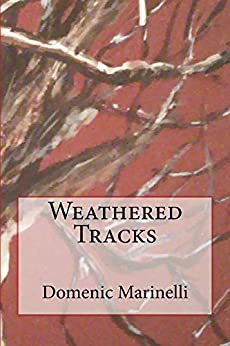
Fast forward a few years, I was finally convinced to join in on social media, starting first with Facebook, as I had independently published my first novel, Weathered Tracks (2016). A few years after that, I landed my first freelance writing gig, and by the end of 2019, I was able to write full-time. It’s been a crazy ride and continues to be a crazy ride, but I wouldn’t be able to do anything else.
You're such an inspiration. Can you tell us about your published or unpublished books?
Weathered Tracks was my first book, as I mentioned, and it was me trying to combine horror with Transgressive fiction in a sense. It paid off because it turned out to be something I’m very proud of and really can’t be associated with any of the aforementioned genres. It kind of became its own thing.
A lot of my books fall into that category. I usually start off with a concept or a direction, usually outlining the whole thing, but sometimes the project kind of takes a life of its own.
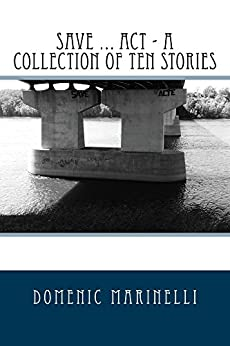
I followed my first book up with a collection of stories, Save … Act – A Collection of Ten Stories, then the novella, Miles In The Dark. Then came my first straight-up horror novel, Beneath The White Darkness. To date, it’s my biggest book and one I think you can really sink your teeth into if looking for a good horror novel that isn’t at all typical.
Then came 13 Years of Lamentation, a strictly Transgressive piece…a story that isn’t all that easy to read but honest. I then released Resonant Words (articles) and in quick succession released Strays in the Cold and Kiss of the Calliope, another horror piece. In Strays in the Cold, some of my first bits of poetry are collected, as are stories and even a play entitled “R-E-V-E-L-A-T-I-O-N.”
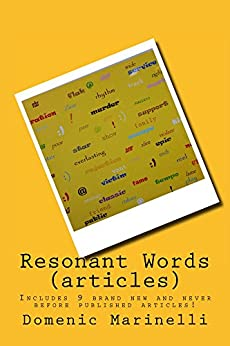
Then came Flea Market Scripture and Generic V, my first take on satire. And after a horror collection entitled The Mannaro Motel at the tail end of 2019, I released 4 books in 2020: An Open Letter to Arthur Pond, Where It Lay Hidden, Stella’s Lighthouse and Summer of the Great White Wolf. 2020 was huge, because I released these four novels, but was working for a local paper in Montréal, covering crime, politics, community events and the Covid-19 pandemic. I look back on 2020 now and wonder how I got everything done, but I managed (laughs).
This year, so far, I’ve released His Old Tapes (stories & Poetry), and have been promoting it as best as I can on a few podcasts and one live reading in the city of Pincourt here in Québec, just west of Montréal. I try to go to many readings while touring a book, but the pandemic has made that hard for sure.
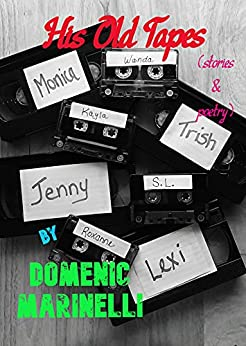
For each of your books, how long did it take you to write?
That’s an interesting question. It’s always different for me. Sometimes a book can take me ages; especially the big ones. That’s either because of research, or the novel is a pretty sprawling book and needs the time to develop on its own terms. I guess you can’t rush it sometimes, but in other cases, I can have a book conceptualized, written and edited inside of 2 months. That’s what happened with Where It Lay Hidden and a few others.
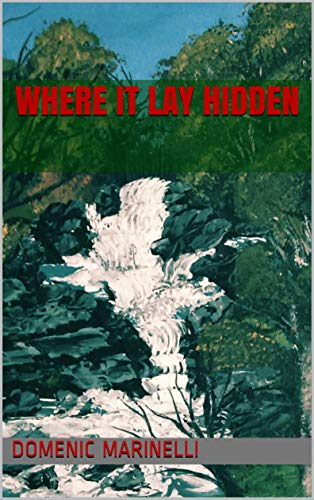
Tell me about a time when you developed your own way of doing things or were self-motivated to finish an important task.
It’s about routine in the end. Beat poet and writer, Gregory Corso said that you can’t separate the poet/writer from his work. He or she is one in the same with his work—that’s how it works best. I definitely live by that. It took me a while to get there, because sometimes life kind of gets in the way, and you want to do it all in a sense, but a decision needs to be made at one point…do you want to be a writer or do you want to be an accountant that wrote a book?
It’s hard for a lot of people to grasp that, and I get that, because they’re not living what I’m living: deadlines, getting paid for what you put forth on your own terms, editors, etc., but in making my routine and building my life around that routine, I’ve settled into a pretty good groove that works for me. It wasn’t always the case, and that was a recipe for disaster for sure. Now my daily journalism, fiction, poetry and promotions kind of fit into the groove that is my life somehow, which entails family stuff as well, which is important to me.
That's an absolute truth. What was an early experience where you learned that language had power?
Mordecai Richler, author of The Apprenticeship of Duddy Kravitz and so many more. This was a man that had the ambition to know what he wanted from an early age, and he knew that he had to be honest in delivering that message that he wanted to get across. In Montréal, he battled constantly because of his opinion and how honest he was in his journalism and in his fiction, but he never backed down from the fight.
The language war in Montréal and the rest of Québec was pretty nasty at times—especially in the mid-nineties and even before—and he was honest with his opinion in that regard. It got so bad—the opposition against him from the French-speaking citizens in the province, that journalists would go to his apartment in downtown Montréal and interview him, and you know what…he ‘d invite them in, and have a war of words, defending his stance…and that was on TV, believe it or not.
I saw that as a child at the time, and was in awe. Here was this writer, defending his stance, allowing these people that probably hated him, with whatever hidden agendas they had, and he’d bat the balls they threw at him out of the park, one at a time. Now that’s power.
One of my favorite quotes of his: "I’m trying to tell the truth. I don’t think that it’s something that has to be in season like hockey or hay fever. I think you should be able to tell the truth at any time."
I try to live by that every time I sit down to write a piece…and in this sensitive society, it isn’t always easy.
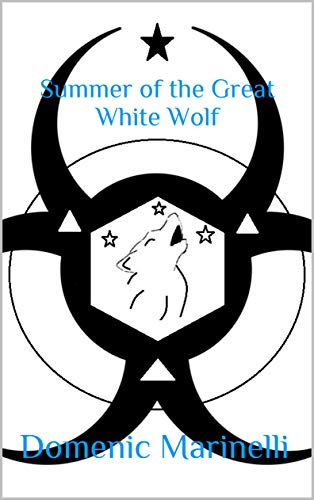
What makes a good transgressive story?
Honesty. Truth…writing without any filters. That’s what makes a good transgressive story. When I see writers in the genre pulling their punches, I start to worry. Transgressive fiction should be a no-holds barred shoot fight of the most violent proportions—no limits. Editors and publishing houses that are worried about offending readers, have no business publishing good transgressive fiction that has no boundaries.
A transgressive writer never has that added element of danger of going out of bounds with his or her work…there are no rules essentially. Because there are no rules in life when it comes to how far a murderer will go; how far an effected addict will go; how far an abuser or pedophile will go. Therefore all of that needs to be on the page, no matter how uncomfortable it gets.”
What is it about the Transgressive Genre that attracts you? When did you find yourself attracted to transgressive literature? Why?
That same honesty. I love the grandfathers of the genre…Charles Bukowski, of course William Burroughs…a Beat, yes, but Naked Lunch definitely opened doors for transgressive writers everywhere. I absolutely adore the work of A. M. Homes. ,The End of Alice is one of the greatest books around, Homes showing that she had no fear and no filter when taking the book where it needed to go to effectively deliver the intended message and lesson. Because even in transgressive fiction, there’s a lesson to be learned, I feel.
Everybody has a story…the judged, the outcast, the loner, the deranged, the sufferer…everyone. Transgressive fiction—honest transgressive fiction, is a way of telling those stories.
In Stella’s Lighthouse, the story needed to go to a dark place—somewhere extremely uncomfortable for many to delve into, but in the end, there’s a point to all that madness, as even in life, a disastrous and unfortunate scene of murder and brutality will tell a story, and as a journalist, a writer, we need to get that message across honestly—tell the story right…deliver the message.
Otherwise we’re just sugarcoating everything for our readers and that’s not right. If society continues to do that, future generations will be nothing but a bunch of over-sensitive automatons, and when the proverbial shit hits the fan, when things go badly, they won’t know where to turn because they’ve been canceling everything that makes them uncomfortable; pushing away that truth and honesty that real transgressive fiction brings to their doorstep; whether historic or in fiction and the rest of the arts. Imagine trying to cancel the Mona Lisa because she offended someone in some way! Ridiculous.
Indeed. Which character in a book most represents you? Why?
Great question. I often see myself in other people’s work—in a book I read. I’ll see some of myself in that character. But as far as my characters are concerned, they’re their own entities in a sense. I often write about flawed individuals (although we’re all flawed—so maybe in a sense, that’s how my characters are similar to me), or rather those that are on a journey to self-discovery, and I find that I can have more compassion for others, especially a sufferer of addiction, or a criminal full of remorse or on his way to finding remorse…on his or her way to being a contrite sinner.
I can’t really see myself in any of my characters all that much, except for maybe in small ways, but they’ve all become so important to me, from when they whispered their existence from out there in the ether and into my ears and all these years later, I still feel them around me.
Apart from books, you’re active on YouTube as well. Tell us a bit about it.
Yes, YouTube was a way to bring my work to a broader audience. It’s had a slow start, as there’s so much on YouTube these days. I also put up old school videos. I try to make videos that look older in context—like the videos you can find up there of Jack Kerouac readings. That’s done by design. I want my fiction to be associated with the Beat videos that can be found online these days.
I’ll put readings up there, edited with images I’ll shoot with my Nikon on a walk or something. I’ll put up live readings as well. I want it to be a place for people to go and check out some old school poetry and prose readings, and listen to some folksy background music as the images and words kind of come at you. Not too popular in this era of influencers and TikTok, but I’ll stick to my guns…it’s worked out so far thank God.
Thank you so much Domenic for being here with us today and I hope we can collaborate in the near future.
If you're interested to know more about Domenic and his books check out the following links:
Amazon Author Spotlight: https://www.amazon.com/Domenic-Marinelli/e/B01M2YWAM4?ref=sr_ntt_srch_lnk_1&qid=1636037344&sr=8-1
Barnes & Noble: https://www.barnesandnoble.com/s/domenic%20marinelli
Indigo/Chapters: https://www.chapters.indigo.ca/en-ca/home/search/?keywords=domenic%20marinelli#internal=1
YouTube: https://www.youtube.com/channel/UClFhln79utCCOWbuiP2EwWA
Instagram: https://www.instagram.com/author_domenic_marinelli/?hl=en
Twitter: https://twitter.com/DM_arinelli?ref_src=twsrc%5Egoogle%7Ctwcamp%5Eserp%7Ctwgr%5Eauthor
Muck Rack: https://muckrack.com/domenic-marinelli/articlesFacebook: https://www.facebook.com/profile.php?id=100011537566365



